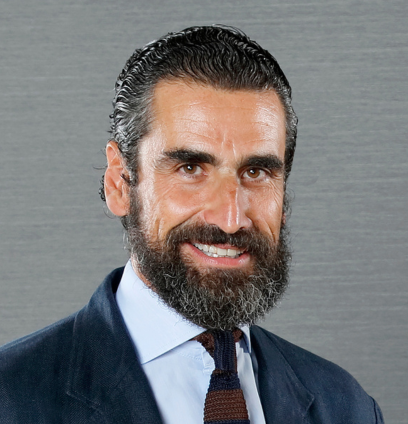-
TrendsPublications and Reports
-
SectorEducation
-
CountriesSpain
In a context like the current one, unpredictable, companies have to be much more flexible and adapt to changes. The CEO plays a key role and must have a transformational, authentic, digital, influential profile with social expectations. Only in this way will their leadership contribute to improving the positioning of the company, attract investors and talent. These are some of the conclusions of the report New Times, New Leadership, prepared by LLYC, which analyzes the necessary steps to work on the reputation of the top executive of a company: why it is important that he connects with people and generates intangible value, how he has to do it and where his management has to evolve.
“These are times in which organizations are moving towards more horizontal and transparent models that are demanding a new leadership model that seeks to be more authentic. The CEO can no longer be a mere manager but must be driving the attraction of talent and investors, and improving the positioning and reputation of his company. The intangible value of their leadership will therefore improve the economic value of the organization,” says Marta Fernández Folgueira, Director of Corporate Communications at LLYC.
These are the three steps to achieve authentic leadership from CEOs and executives:
Understand the why
In a world characterized by global uncertainty and the increasing polarization of society, leadership that adapts to new challenges is required. Leaders need to be more visible, conversational and engaged.
– Improves financial performance: the trust that managers transmit to stakeholders and the transparency of their management reduce reputational risks. In crisis situations, a credible CEO can act as a protective shield and attract investment, as the company’s actions are closely monitored by financial analysts and shareholders.
– Talent retention and attraction: top management leadership can inspire and motivate employees, generating a sense of belonging and enhancing employer branding. This is crucial for attracting and retaining talent, especially in a post-pandemic context where professionals are looking for more well-being at work, flexibility and transparency.
– It improves the company’s positioning: media presence and participation in relevant forums allow to improve the organization’s positioning and visibility. Authenticity and connection with stakeholders are key to achieve this, since a corporate message transmitted by a CEO can have a significantly greater impact than if it comes from corporate channels.
Understand the how
To lead in this era, five key attributes are needed:
– Transformational Style: leadership based on admiration, active listening and dialogue with stakeholders is sought after. They must drive strategic vision and adaptation to changing challenges.
– Authenticity: they must maintain coherence between their personal and professional lives, building an authentic leadership based on honesty and humanization.
– Connected and digital: CEOs must be present on social networks, being accessible and keeping their teams informed. Social networks allow a more transparent and closer communication.
– Influential and referent: they must choose narratives and communication territories consistent with their leadership, becoming referents on key issues for their business.
– With social expectations and positive impact: They must contribute to legitimate social causes, demonstrating humility and humanization.
Understands the where
Leaders must assess their availability, communication skills and willingness to show personal aspects. Then, they must define a clear purpose for their leadership and choose among three levels of projection: protection, promotion or influence.
– Protection level: low media profile, mostly reactive, with little activity in social networks but with digital assets taken care of. This level offers a minimal presence and focuses on maintaining a hygienic image.
– Advocacy level: profiles that are dedicated to disseminating content on a regular basis, establishing connections and relationships, and amplifying through digital assets. This approach seeks to build engagement among desired circles of influence.
– Influence level: profiles that stand out for their Thought Leadership content, have accolades, awards or participate in industry rankings. Authentic leaders can connect with large audiences and become essential references and assets for the organization’s strategy.
In short, in an ever-changing world, authentic leadership is critical to business success. Leaders must understand why it is crucial, how to develop it, and where to focus to achieve effective transformation.
Executive Classroom
For the preparation of this report, LLYC has relied on the opinions of some of Spain’s top managers. Among them, Tomás Pascual, Chairman of the Pascual Group. “Knowing how to lead well is knowing how to mobilize well. You need people leadership. The important thing is to have a common vision, to align on the same project, with diverse people, who have different profiles to achieve the common long-term objective,” he says.
Meanwhile, María Helena Antolín, Vice President of Antolin, says: “I am lucky enough to have lived in many countries, either studying or working, and I truly believe that we have a lot in common with global managers. The only thing we need is to believe how great we can be.
Ignacio Osborne, Chairman and CEO of Grupo Osborne between 1996 and June 2023, said: “The relationship between people is what worries me most, how they work with their colleagues, how they work with clients, with their families and with shareholders. All of this has an impact on individual and company talent.”
The publication of this report coincides with the launch of Aula Directiva, a space for academic purposes at LLYC, which hosts interviews with presidents, CEOs and senior managers. These are conversations with the professor and head of the firm’s Executive area, Iñaki Ortega, in which he emphasizes that reputation, transformational leadership and social commitment are key factors in the new business management.
“During 2023 we have interviewed the CEOs of some of the leading Spanish companies to find out their concerns. The top management of companies in sectors as varied as Ibercaja, Grupo Pascual, Antolin, Ecoembes, Osborne and Singular Bank have told us of the need to listen to stakeholders and manage uncertainty through innovation without renouncing honesty,” says Iñaki Ortega.





